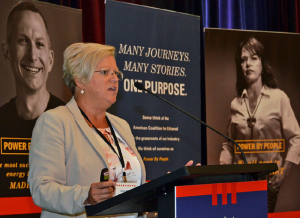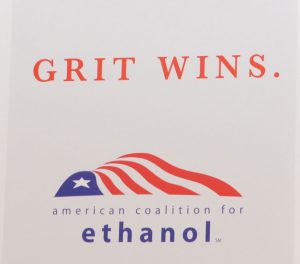 The American Coalition for Ethanol (ACE) released a White Paper on “The Case for Properly Valuing the Low Carbon Benefits of Corn Ethanol,” coinciding with a general session panel at the 31st annual ACE conference in Minneapolis last week.
The American Coalition for Ethanol (ACE) released a White Paper on “The Case for Properly Valuing the Low Carbon Benefits of Corn Ethanol,” coinciding with a general session panel at the 31st annual ACE conference in Minneapolis last week.
The panel highlighted the paper in a discussion on updates to lifecycle modeling and opportunities on the horizon for ethanol as a low carbon fuel. Members of the panel included Bill Hohenstein, Acting Director of the Office of Energy Policy and New Uses, Office of the Chief Economist, USDA; Ron Alverson, member of ACE’s Board of Directors representing Dakota Ethanol and a chief contributor to the White Paper; and Brendan Jordan, Vice President of the Great Plains Institute.
“The ACE White Paper makes a compelling case that lifecycle GHG modeling must reflect the latest science if low carbon fuel programs are to achieve their desired results,” said Jordan. “The Great Plains Institute agrees there is a huge opportunity for existing corn ethanol plants to lower their carbon footprint through innovative technology and updated lifecycle modeling.”
“Since the direct effects on soil carbon stocks of each biofuel feedstock crop can have a very large impact on carbon intensity, it is crucial that this accounting is included in the modeling,” Alverson said. “The trend is biofuel’s friend — petroleum-based transportation fuel lifecycle GHGs continue to rise and biofuel lifecycle GHGs continue to improve.”
Click here to read the White Paper and listen to the panel and interviews with Jordan and Alverson below.
Low Carbon Fuel panel with Bill Hohenstein, USDA; Ron Alverson, Dakota Ethanol; and Brenden Jordan, Great Plains Institute –
ACE18 Low Carbon panel
Former ACE President Ron Alverson, Dakota Ethanol, talks about White Paper on Low Carbon Benefits of Corn Ethanol –
Interview with Ron Alverson, Dakota Ethanol
Interview with Great Plains Institute Vice President Brendan Jordan
Brendan Jordan, Great Plains Institute
2018 ACE Conference Photo Album

 Fuel quality and ensuring the safe arrival of ethanol to its destination were among topics on the program during the first session of the 31st annual American Coalition for Ethanol conference in Minneapolis.
Fuel quality and ensuring the safe arrival of ethanol to its destination were among topics on the program during the first session of the 31st annual American Coalition for Ethanol conference in Minneapolis.













